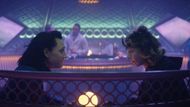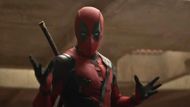The Marvel Cinematic Universe (MCU) is among the largest and most lucrative film franchises in history. It began in 2008 with Iron Man and has expanded into a massive narrative shared through films, streaming television shows, and even animated programs.
Marvel Studios, the company that produces the MCU, is headed by Kevin Feige.
The MCU started with "Phase One," which brought characters such as Iron Man, Captain America, Thor, and Hulk. These initial films had their own narratives but shared the same continuity behind the scenes.
All culminated in The Avengers (2012), where the heroes joined forces for the first time. This made the audience believe that all these films formed one giant shared universe.
During "Phase Two" and "Phase Three," Marvel began to construct stories more linearly. On-screen events in the films unfolded in real time or concurrently with other stories.
Captain America: Civil War and Avengers: Infinity War, for instance, were films that involved events overlapping on screen. This period, as a whole, referred to as "The Infinity Saga," ended with the epic Avengers: Endgame (2019). It had a five-year time skip and drastically altered the MCU's timeline.
Following Endgame, the MCU moved into a new phase with additional shows and different kinds of stories. "Phase Four" and "Phase Five" brought in Disney+ shows such as WandaVision, Loki, and Ms. Marvel. These ventured into different styles and even branched out into other timelines and universes.
Loki and What If? First branched out of the main MCU timeline, laying the groundwork for a multiverse.
To assist the fans in keeping up with all of this, Marvel published an official timeline book in 2023. It laid out the sequence of events in the first four phases and clarified things.
Marvel also included the old Netflix Marvel shows (such as Daredevil) on Disney+ in 2024, linking them more directly to the overall MCU narrative.
In the MCU, the current "present day" is the year 2027. Avengers: Endgame had a five-year jump into the future, and subsequent films and television shows picked up from there. Phase Five of the MCU is from 2023 to mid-2025.
This consists of movies in theaters as well as streaming shows. Some major projects in this phase are Thunderbolts and Daredevil: Born Again.
Now, let's explore some of the biggest instances where Marvel broke its own rules—story, structure, or by altering what the fans were used to—and how they assisted the franchise in expanding further.
Breaking story and timeline rules

Time travel confusion
In Avengers: Endgame (2019), the characters explain how time travel works. They say that going to the past doesn’t change the present. Also, to avoid creating new timelines, the Infinity Stones must be returned to where they were taken from.
Bruce Banner (Hulk) and the Ancient One explain these rules clearly. But later shows don’t follow these rules:
Ms. Marvel: In episode 5, Kamala Khan travels back in time to 1947 and assists her own family in the past. This forms a time loop, something which is not supposed to happen under Endgame's rules.
Loki: This series introduces the Time Variance Authority (TVA), which watches over a "sacred timeline" and removes unwanted branches. Endgame never mentioned the TVA or this idea. Loki’s actions in the show create even more confusion about how time travel works, especially with the concept of the multiverse.
Due to these paradoxes, a great number of enthusiasts and reviewers believe that the MCU must become more adaptable in regard to its own time travel norms.
Timeline inconsistencies
It's extremely difficult to keep the MCU timeline intact for so many movies and TV shows. Marvel made some apparent errors:
Spider-Man: Homecoming: The film claims it takes place eight years after The Avengers (2012). But this isn't consistent with the official timeline, according to which only four years should've passed. The filmmakers acknowledged this mistake. Avengers: Infinity War later disregarded the error and claimed there was instead a six-year gap.
Phase overlaps and retcons: As the MCU expanded, various stories began overlapping or altering previous events. For instance, Captain Marvel (2019) is set in the 1990s. It presents younger versions of key characters and introduces new events that change the background history of the entire Marvel universe.
Also, in 2024, Marvel incorporated the Netflix Marvel shows (such as Daredevil) into the Disney+ timeline, making it even more complicated.
Marvel has dealt with these issues in a realistic manner. They published official timeline books, owned up to errors, and corrected them when necessary. Rather than sabotaging the story, these changes provided them with greater liberty to create new stories.
Breaking the fourth wall

In a few of the Marvel narratives, characters are aware that they are in a show or comic. This is referred to as "breaking the fourth wall." It occurs quite often in the comics, and now it's appearing in the movies and shows as well.
She-Hulk: She-Hulk has frequently addressed readers directly in the comics since the 1980s. On Disney+'s She-Hulk: Attorney at Law, she does the same. She cracks jokes about Marvel's storylines, addresses the audience, and even bickers with the writers of the show.
Deadpool: He is the most well-known Marvel character who breaks the fourth wall. He realizes that he's in a story and has lots of fun joking about it. This occurs both in the comics and in the Deadpool films.
Loki: Loki demonstrated that he gets that the Marvel Universe is an invented story. In comics, he even explains to Deadpool that they're fictional. In Young Avengers, Loki plays tricks with comic book pages in order to avoid a trap.
Spider-Man: Spider-Man breaks the fourth wall seldom, but has his witty remarks reveal slight awareness occasionally. For instance, he once criticized someone for misspelling his name within the story.
These are the types of moments that make the stories more enjoyable and evidence that Marvel knows how to laugh at itself. The fans enjoy these moments, and they make the characters seem even more fascinating.
Experimenting with new genres and storytelling styles

Marvel doesn't hesitate to experiment with new styles or to tell stories differently. This has resulted in some of its best works.
Guardians of the Galaxy: This 2014 James Gunn movie blended science fiction, comedy, and old-time music. It was quite unlike other Marvel movies, which primarily occurred on Earth. It was a huge success, proving that fans enjoy new and fresh approaches.
WandaVision: This Disney+ show began as a homage to classic sitcoms. Every episode was presented as a different type of television show from previous decades. Eventually, the actual superhero narrative emerged. This storytelling approach was quite new and different from usual Marvel tales and was hailed for its boldness and creativity.
Infinity War: The film concluded with the bad guy winning, and it was a shock. Superhero films normally conclude with the heroes winning. Concluding on a down note made fans even more hyped for the sequel, Endgame.
The Multiverse Saga: TV shows and films such as Loki, Spider-Man: No Way Home, and Doctor Strange in the Multiverse of Madness popularized the concept of a multiverse. That is, many alternative characters and worlds exist. It allows Marvel to do "what if" stories, the resurrection of past characters, and have enjoyable crossovers.
Love movies? Try our Box Office Game and Movie Grid Game to test your film knowledge and have some fun!
